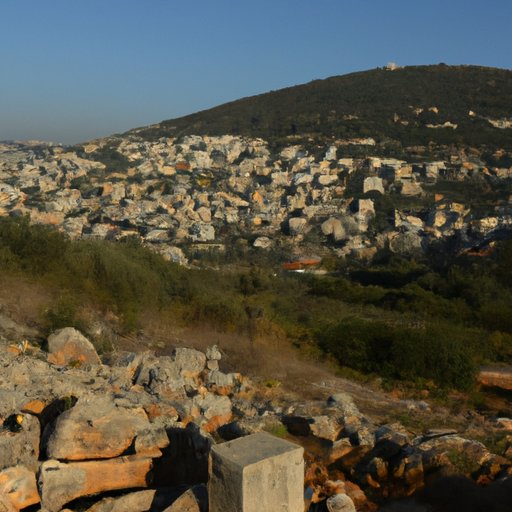Introduction
For many people around the world, Lebanon remains a mystery – a country with a rich culture, history, cuisine, and a complex political landscape. Some may even confuse it with other Middle Eastern countries like Iran or Iraq. The purpose of this article is to help you discover Lebanon, a country with an incredible past and a promising future.
History and Culture of Lebanon
Lebanon has a rich and varied history that dates back thousands of years. The country served as a crossroad of civilizations for centuries, and it has been influenced by different cultures and empires, including the Phoenicians, Romans, Byzantines, and Ottomans. In the 20th century, Lebanon achieved independence from France and went through a period of relative stability and prosperity. However, the country was plunged into civil war in the late 1970s, which lasted for over a decade. Today, Lebanon is a democratic republic with a unique cultural heritage that combines eastern and western influences.
Lebanon is also known for its vibrant artistic and literary scene. Many talented writers, painters, filmmakers, and musicians call Lebanon home. The country has produced many influential cultural figures, including Khalil Gibran, the author of “The Prophet,” who is considered one of the greatest poets of the 20th century. Lebanese cinema has also enjoyed international recognition, with directors like Nadine Labaki, Ziad Doueiri, and Philippe Aractingi winning critical acclaim around the world.
Political and Economic Landscape of Lebanon
Lebanon’s political system is unique in the Middle East. The country has a parliamentary system with a president as the head of state and a prime minister as the head of government. However, power is also shared among different religious groups, which can complicate decision-making processes. The country’s economy is characterized by a large service sector, a thriving banking industry, and a high degree of informality in the job market. Lebanon has been facing several economic challenges in recent years, including high levels of public debt and unemployment.
Lebanese Cuisine
Lebanese cuisine is famous for its delicious and healthy dishes, which are often vegetarian or include grilled meats and fish. Some of the most popular dishes include hummus, tabbouleh, baba ghanoush, falafel, and shawarma. Lebanese cuisine is also known for its use of unique ingredients like sumac, za’atar, and pomegranate molasses. Food culture is an essential part of Lebanese social life, and meals are often enjoyed with family and friends, accompanied by wine or arak (an anis-flavored spirit).
Famous Lebanese Figures
Lebanese history and culture have produced many influential and notable figures. Some of them include the poet Khalil Gibran, the artist Saloua Raouda Choucair, the musician Fairuz, the filmmaker Nadine Labaki, the writer Amin Maalouf, and the businessman Carlos Ghosn. These individuals have contributed to the cultural, artistic, and intellectual richness of Lebanon and the world.
Tourism in Lebanon
Lebanon has a lot to offer tourists, from historical landmarks to stunning natural sites. Some of the most popular tourist attractions include the Jeita Grotto, the ancient city of Byblos, the National Museum of Beirut, the Baatara Gorge waterfall, and the Beiteddine Palace. Lebanon’s rich cultural heritage and vibrant food and wine scene also attract many visitors each year. Despite political and security challenges, tourism has been a significant contributor to Lebanon’s economy.
Refugee Crisis in Lebanon
Lebanon has been hosting a significant number of refugees since the start of the Syrian conflict in 2011. There are currently over one million Syrian refugees and an estimated 300,000 Palestinian refugees living in Lebanon. The influx of refugees has put pressure on the country’s economy, infrastructure, and social services. The Lebanese government has been working with international organizations to mitigate the impact of the refugee crisis, but the situation remains challenging.
Religious Diversity and Coexistence
Lebanon is a country with a high degree of religious diversity. The population is divided among several sects, including Sunni and Shia Muslims, Maronite Catholics, Greek Orthodox, and Druze. Despite these differences, Lebanon has a history of religious coexistence, with many interfaith marriages and mixed neighborhoods. The country has also managed to avoid religious conflict in recent decades and has been a model of tolerance and respect for religious diversity in the region.
Conclusion
Lebanon is a fascinating and complex country with a rich cultural heritage, a complex political landscape, and a promising future. There is much to discover in Lebanon, from its unique cuisine to its stunning natural sites, from its influential cultural figures to its history of religious coexistence. Despite the challenges that Lebanon has faced and continues to face, the country remains a beacon of hope and inspiration for the region and the world.
